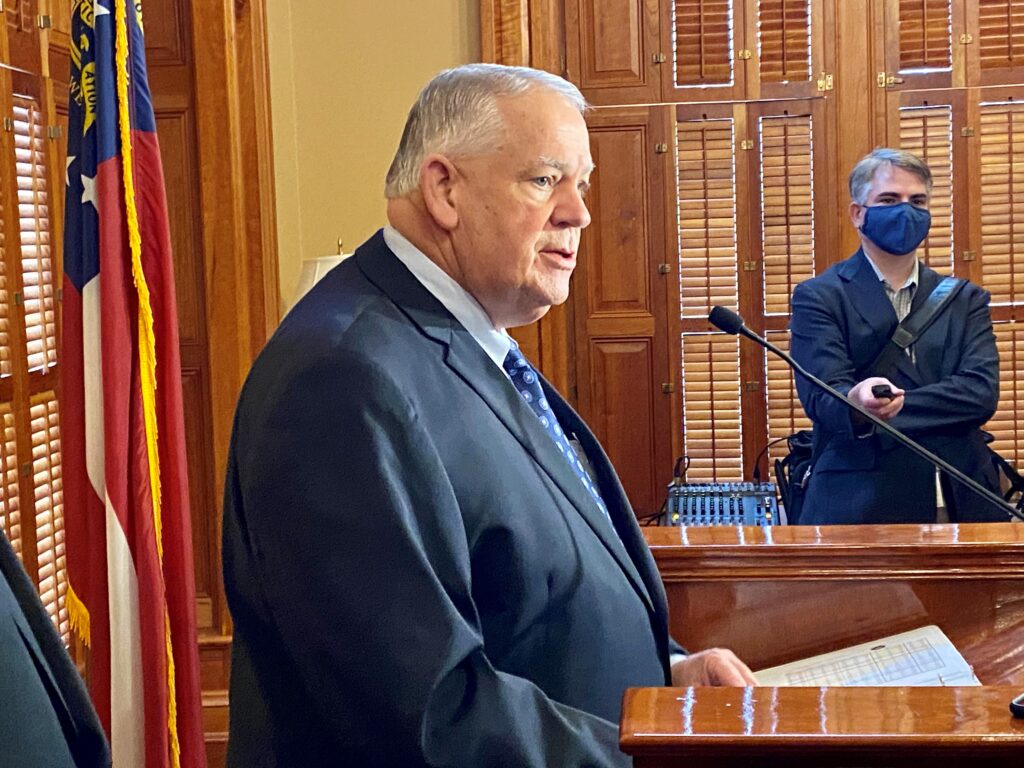
ATLANTA – A bipartisan overhaul of Georgia’s mental health system took a first step toward passage Wednesday when it cleared a state House committee.
The House Health and Human Services Committee approved the comprehensive legislation and sent it on to the House Rules Committee to schedule a floor vote.
Wednesday’s vote came after House Speaker David Ralston, the bill’s chief sponsor, urged the panel to act on what he said is the most important issue lawmakers are facing this year.
“This discussion impacts most every family in Georgia in one way or another,” said Ralston, R-Blue Ridge. “Many Georgians are suffering with mental health issues. Their families are suffering.
“They’re looking for help and either don’t know where to turn or may not have a viable option for mental-health services.”
Georgia ranks 48th in the nation in access to mental health and substance abuse services.
The Mental Health Parity Act would require health insurance companies to treat mental illness in the same way they treat physical illness. The parity provision also would apply to Georgia’s Medicaid and PeachCare for Kids programs and to the State Health Benefit Plan for Georgia teachers and state employees.
The legislation also would require care management organizations (CMOs) participating in Georgia Medicaid to dedicate at least 85% of their revenues to patient care.
To address the shortage of mental health and substance abuse workers, the bill would create a service-cancelable loan program, an initiative expected to cost $8 million to $10 million.
“Whoever can be part of growing and expanding the workforce is paramount to what we do,” said Rep. Katie Dempsey, R-Rome.
The lengthy bill underwent a series of changes as it made its way through the committee aimed at concerns mental health and substance abuse treatment advocates raised.
For one thing, it removed a proposed registry of children who have required the intervention of the state’s crisis services after complaints it would amount to an invasion of privacy.
Advocates also complained the legislation would make it too easy to involuntarily commit Georgians to mental health care.
Another sticking point has been over who should provide “subsequent transport” of patients brought to hospitals by law enforcement or emergency medical services personnel and how to pay for it.
Rep. Mary Margaret Oliver, D-Decatur, one of the bill’s cosponsors, said the state’s mental health system serves most mentally ill Georgians well but is broken when it comes to those in the most distress.
“The money we’re trying to spend in an effective way is about the folks who are not being managed well,” she said. “They end up in jails, as homeless or in our emergency room system.”
Oliver said financial help is on the way. Georgia expects to receive $600 million from a recent national opioid settlement, including $88 million that will be available in next year’s state budget, she said.
Committee Chairman Sharon Cooper, R-Marietta, said the extension work the panel has put in on Ralston’s bill has helped identify gaps in Georgia’s mental health services delivery system.
“It will help us see how we need to change the system to make it more efficient,” she said.
This story is available through a news partnership with Capitol Beat News Service, a project of the Georgia Press Educational Foundation.